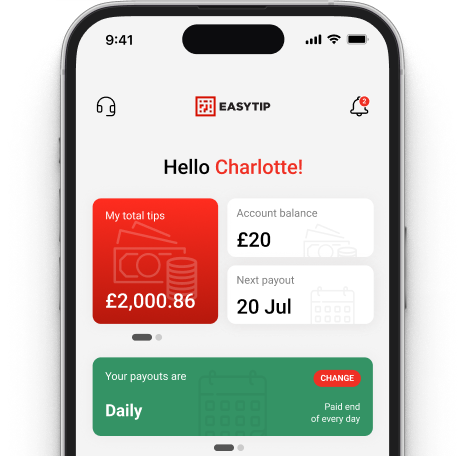Fair, Automated Tronc Management for UK Businesses
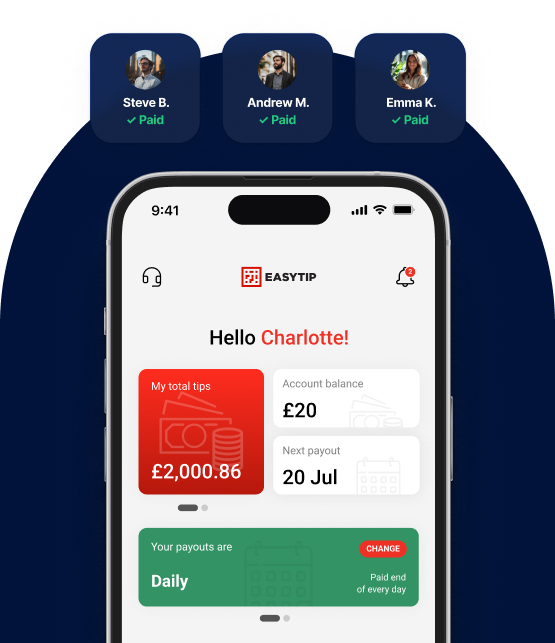
Manage Team-Based Tipping Effortlesly
Manage shared tips effortlessly with our Troncs system. Ideal for teams working together to deliver exceptional service, troncs allow you to:
Pool and distribute tips fairly: Ensure everyone gets their share based on your rules.
Stay compliant: Built to align with the Tipping Act and HMRC regulations.
Reduce admin stress: Automated allocations mean less paperwork and more time for what matters.
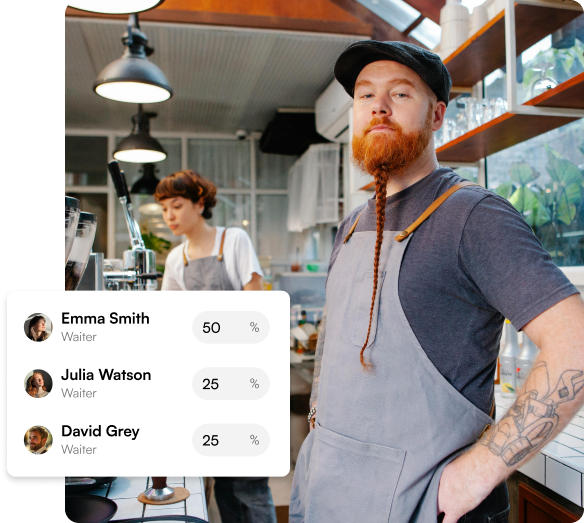
Stay Worry-Free, Every Tip You Take
Designed to ensure your business stays fully compliant with UK legislation, including the Tipping Act. Our platform handles tax and reporting requirements seamlessly
Stay compliant: Built to align with the Tipping Act and HMRC regulations.
Reduce admin stress: Automated allocations mean less paperwork and more time for what matters.
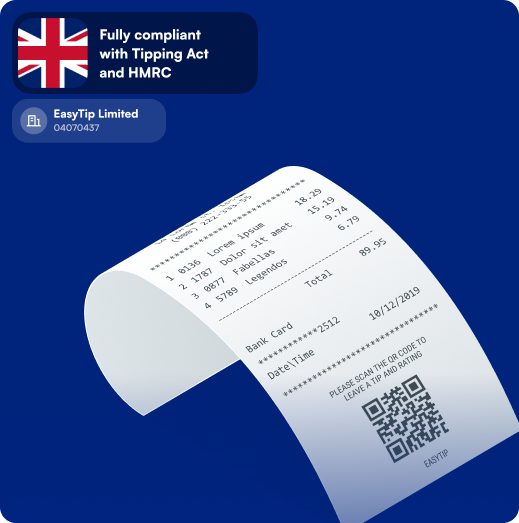
Choose the Right Setup for Your Business
Speak to our team, and we’ll help you choose the perfect solution to simplify tips for your business.
Common Tips
Best for restaurants, hotels, and bars managing pooled tips and service charges.
Boost Earnings, Keep Your Team Happy
With automatic payouts, fair distribution, and clear transparency, EasyTip motivates staff to deliver exceptional service. Higher tips, faster access to earnings, and real-time notifications keep employees engaged and rewarded.
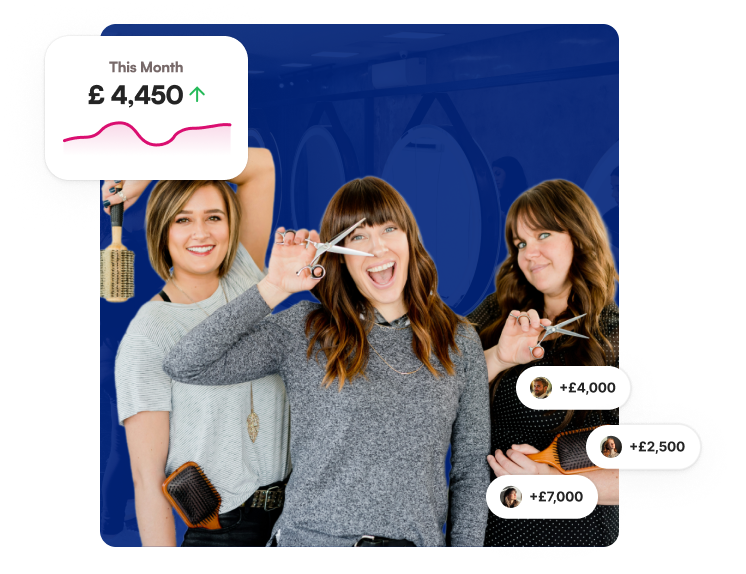
Generate Your Tipping Policy in Seconds
Creating a compliant tipping policy has never been easier. With EasyTip, you can generate a fully tailored tipping policy in just a few clicks.
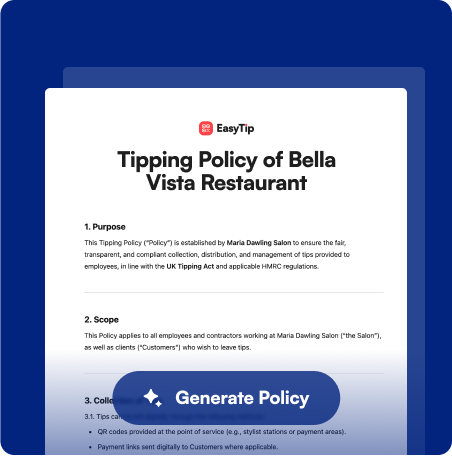
Automate Tronc and make your business fully compliant
We automate the collection and distribution of tips and service charges, ensuring compliance with the Tipping Act and HRMC.
Generate Tipping Policy in seconds
Tax reporting tools
Compliant with the Tipping Act
Stay focused on your business while we take care of the rest.
Frequently Asked Questions
If you can't find an answer that you're looking for, feel free to drop us a line.
A Tronc is a system used to collect, pool, and distribute tips and service charges fairly among employees. It’s typically managed by a Troncmaster and helps businesses stay compliant with UK regulations.
A Tronc is a system used to fairly distribute tips and service charges among staff in hospitality. Managed by a designated Tronc master, it ensures tips are shared based on agreed rules (e.g., hours worked or roles). The Tronc is processed via payroll, where tips are taxed but often exempt from National Insurance if the employer doesn’t control the allocation. It promotes fairness, transparency, and compliance with tax laws.
The Tronc is managed by a designated Tronc master—this could be a manager or an independent third party. The Tronc master oversees how tips and service charges are distributed among employees, based on pre-agreed rules, ensuring fairness and compliance with tax regulations.
Yes, tips distributed through a Tronc are subject to Income Tax. However, if the Tronc is managed by an independent Tronc master (rather than the employer), the tips are usually exempt from National Insurance Contributions (NICs). Proper administration ensures compliance with tax regulations.
Yes, a Tronc can be compliant with the Tipping Act, provided it meets the Act's requirements. This includes ensuring tips are distributed fairly, transparently, and without employer deductions for administrative costs. Proper management of the Tronc ensures compliance with both the Tipping Act and tax regulations.
Tipping made simple. Cashless, compliant & instant.
Enjoy up to 25% more in earnings, happier staff, and stable cashflow.
